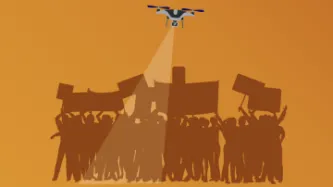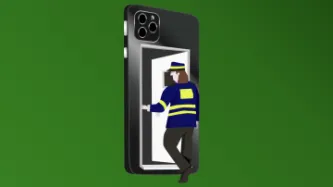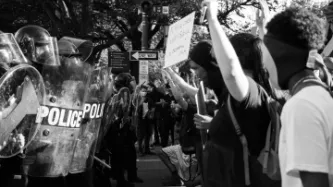Search
Content type: Explainer
What are police drones?
Drones are remotely controlled Unmanned Aerial Vehicles (UAVs) of varying sizes.
They usually come equipped with cameras and might be enabled with Facial Recognition Technology.
Drones can be equipped with speakers, surveillance equipment, radar and communications interception tools, such as ‘IMSI catchers’.
How might drones be used during protests?
Camera-enabled drones may be used to remotely monitor and track people’s movements in public spaces, including at…
Content type: Explainer
What is hacking?
Hacking refers to finding vulnerabilities in electronic systems, either to report and repair them, or to exploit them.
Hacking can help to identify and fix security flaws in devices, networks and services that millions of people may use. But it can also be used to access our devices, collect information about us, and manipulate us and our devices in other ways.
Hacking comprises a range of ever-evolving techniques. It can be done remotely, but it can also include physical…
Content type: Explainer
What is an IMSI catcher?
‘IMSI’ stands for ‘international mobile subscriber identity’, a number unique to your SIM card. IMSI catchers are also known as ‘Stingrays’.
An ‘IMSI catcher’ is a device that locates and then tracks all mobile phones that are connected to a phone network in its vicinity, by ‘catching’ the unique IMSI number.
It does this by pretending to be a mobile phone tower, tricking mobile phones nearby to connect to it, enabling it to then intercept the data from that phone…
Content type: Long Read
In December 2019, the Information Rights Tribunal issued two disappointing decisions refusing appeals brought by Privacy International (PI) against the UK Information Commissioner.
The appeals related to decisions by the Information Commissioner (IC), who is responsible for the UK’s Freedom of Information regime, concerning responses by the Police and Crime Commissioner for Warwickshire and the Commissioner of Police for the Metropolis (The Metropolitan Police) to PI’s freedom of information…
Content type: Long Read
Imagine that every time you want to attend a march, religious event, political meeting, protest, or public rally, you must share deeply personal information with police and intelligence agencies, even when they have no reason to suspect you of wrongdoing.
First, you need to go to the police to register; have your photo taken for a biometric database; share the contacts of your family, friends, and colleagues; disclose your finances, health records, lifestyle choices, relationship status, and…




